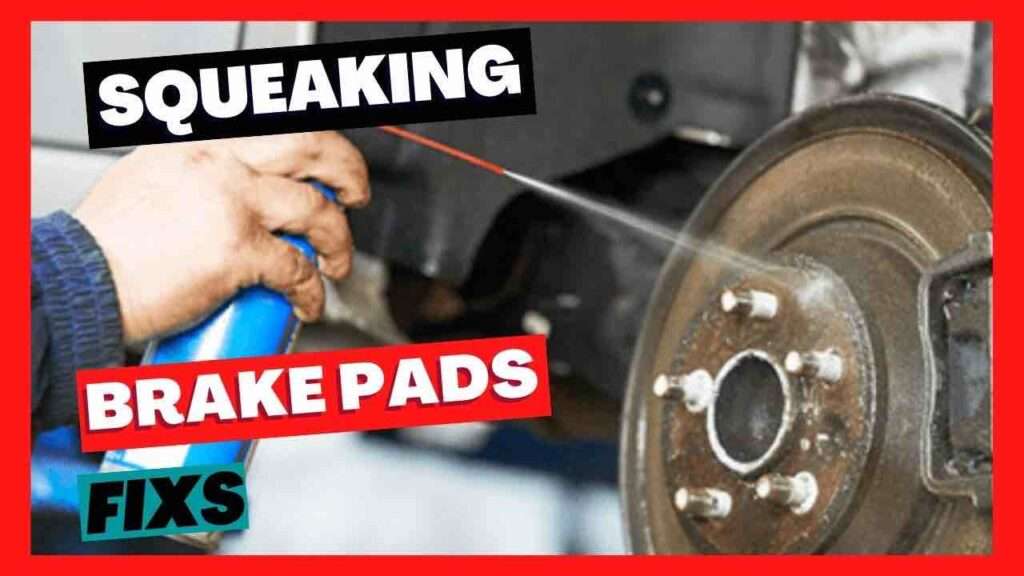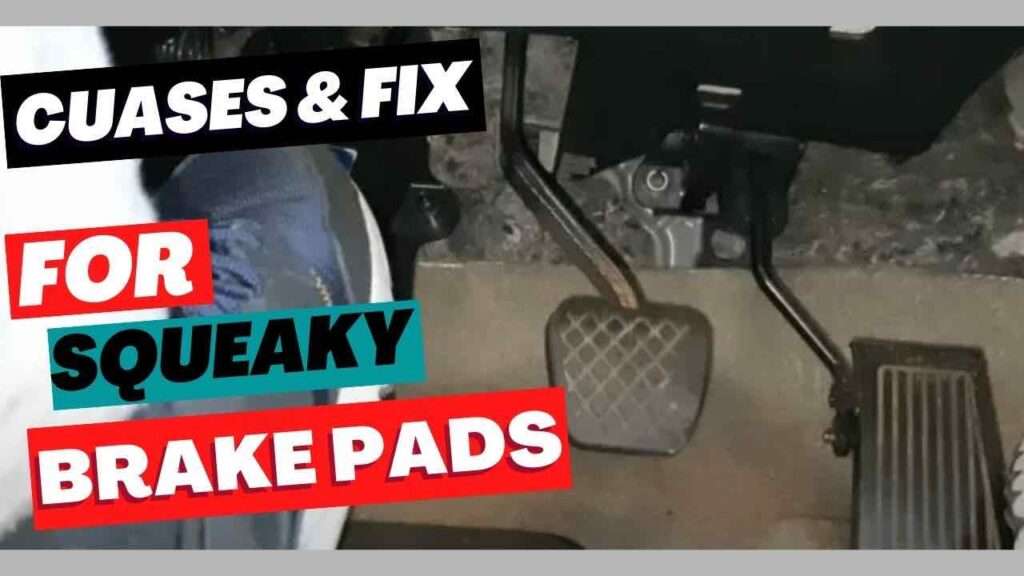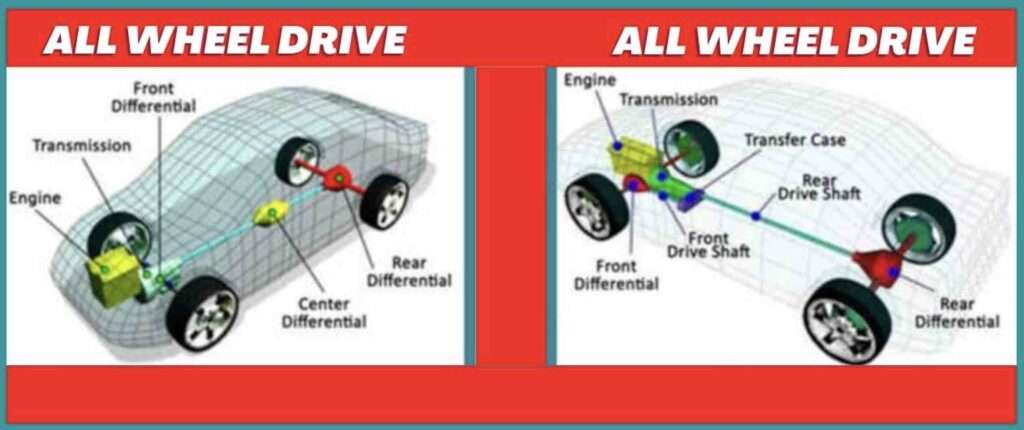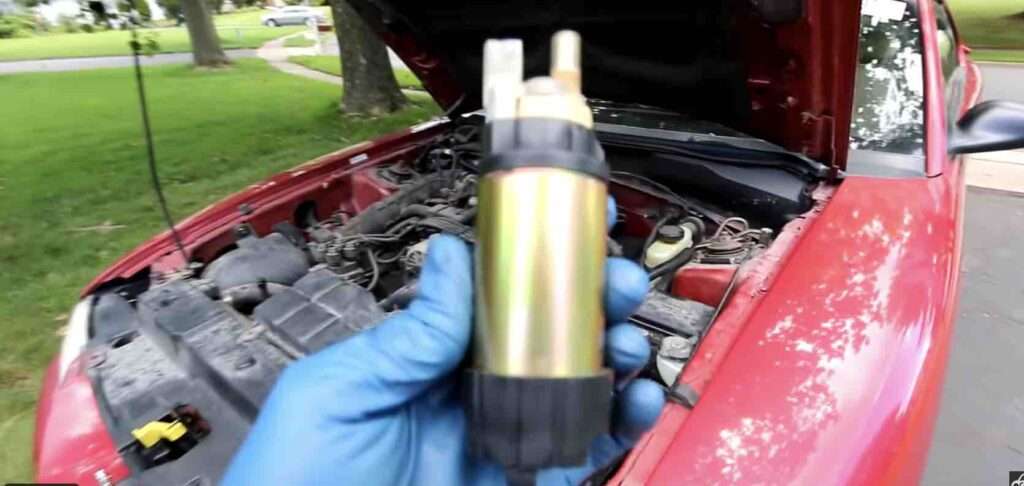Last updated on July 1st, 2023 at 06:33 am
Are you experiencing a squeaking brake pedal or a new brakes squeak, then this post is for you because I will be showing you Why Your brake pedal is squeaking, causes of squeaking brake pedal
Over time, the brake pedal squeaks can occur when it is pressed or engaged. Squeaking brake pedals are a known car problem that different things can cause. The most common cause is worn brake pads or unlubricated pads.
When the brake pads wear down, they can start to squeal when the brakes are applied. Another possible cause is dirt or debris caught in the brakes. This can happen if the brakes are not cleaned regularly. If there is something caught in the brakes, it will need to be removed before the squeaking will stop.
There are a few ways to fix a squeaky brake pedal. You should first check your brake pads to see if they need to be replaced. If they are worn, you will need to replace them with new ones.
Causes of squeaking brake pedal
- The brake pads are getting old and need to be replaced. When the brake pads wear down, they can start to make a noise when they rub against the rotors.
- The brakes may need to be adjusted. If the brakes are not properly aligned, they can also make noise when they rub against the rotors.
- There may be something caught between the rotor and pad (such as a rock or piece of metal). This will cause a squealing sound every time you press your brakes.
- If your brake pedal starts squeaking, it’s important to have it checked out by a mechanic as soon as possible so that you can avoid any potential safety issues down the road.
Why is my brake pedal squeaking?
Some factors can cause squeaking brakes. The main cause is simply worn brake pads. When the brake pads wear down, they no longer make full contact with the rotors, and this can cause a squeaking noise.
Another likely cause is rust on the rotors or calipers. Rust can build up over time and prevent the brake pads from making full contact with the metal surface, which again will lead to squeaking noises.
To add to it, if your vehicle has been sitting for a long period (months or years), then the brakes may have seized up due to lack of use. In this case, you’ll need to have a mechanic inspect and repair your brakes before you’ll be able to drive safely again.

Squeaking brake pedal: how to fix squeaky brake pedal
Squeaky brake pedals are a problem for many car owners. There are a few ways to fix this problem, but the most common is to lubricate the brake pedal simply. This can be done using a silicone-based lubricant or spraying WD-40 onto the brake pedal.
If your squeaky brake pedal persists after lubricating it, you may need to replace your brake pads.
Here is a video on how to replace a brake pad you may love to watch.
New brakes squeak
Whenever your brake pedal squeaks when you try to hold the brake, your brake may be worn; you should check to see if the brake pads need to be replaced. If they are worn down, they will cause the pedal to squeak. You can also try lubricating the brake caliper slides and pins with silicone grease. If that doesn’t work, you may need to replace the brake pads and rotors.
On the contrary, since the pads are relatively new, the thing causing the new brakes squeak is probably because the new brakes is rubing against the rotors in a way that creates friction and noise. In either case, replacing the pads should fix the problem.
Brake pedal squeaks
A brake pedal squeaks is one of the most annoying sounds a car can make. It’s also one of the most common, which means many people out there are trying to figure out how to fix it. The good news is that it’s usually an easy fix. The bad news is that it can be hard to diagnose the root cause of the squeak.
There are varying reasons that can cause a brake pedal to squeak. The first is simply dirt and debris build-up on the pads or calipers. This can happen even if you don’t use your brakes very often, as dust and road grime accumulate over time.
If this is the problem, you’ll likely hear the squeaking when you start using your brakes after they’ve been sitting for a while, like first thing in the morning or after getting off work at night.
Solution:
A quick cleaning with some brake cleaner should take care of this problem permanently.
If your brakes have been making noise for a while, or if they squeal all the time regardless of how clean they are, then something more serious is likely going on. One possibility is warped rotors; these need to be replaced immediately as they will damage your pads and calipers over time (not to mention being dangerous).
Driving with them will damage your rotors (again, not safe). In both cases, you’ll want to take your car to a mechanic or dealership so they can properly diagnose and repair the issue.
Other potential causes of a squeaky brake pedal include:
- Worn-out brake pads:
If your brake pads are worn out, they may start to make noise as you use them. If this is the case, you should replace your brake pads as soon as possible.
- Loose hardware:
Another potential cause of squealing brakes is loose hardware. This includes anything from the caliper bolts to the wheel lug nuts. Make sure all the braking system’s hardware is tight before driving again.
3. Faulty caliper:
One more possibility is that the caliper is not releasing properly, causing the brakes to drag. Finally, there could be an issue with the brake line, such as a blockage or leak.
Conclusion
Different things can cause the squeaking brake pedal. Typically, worn brake pads are the culprit. When the brake pads wear down, they can start to make a squealing noise when the brakes are applied.
Apart from having worn-out brake pads, dirt or debris on the rotors can result in a squeaking brake. If anything is preventing the smooth rotation of the rotor, it can cause a squealing noise when the brakes are applied.

Uchenna is a Radiographer and Auto parts mechanic who recently got his automotive diploma as an auto repair technician, and since then, has worked on fixing various car problems.
Working as just a radiographer, Uchenna didn’t just get all the fulfillment he desired, because he truly loved doing things tilted toward cars. As a kid, he would take apart his toy cars to see how they worked and would spend hours tinkering with his bike.
So, in 2017 he made the tough decision to become an auto mechanic. He threw himself into his studies and now loves every aspect of what he does.
He gets to work with his hands, solving problems and bringing cars back to life, and sharing his knowledge and easy quick-fix guide online are all part of what makes him feel fulfilled.



